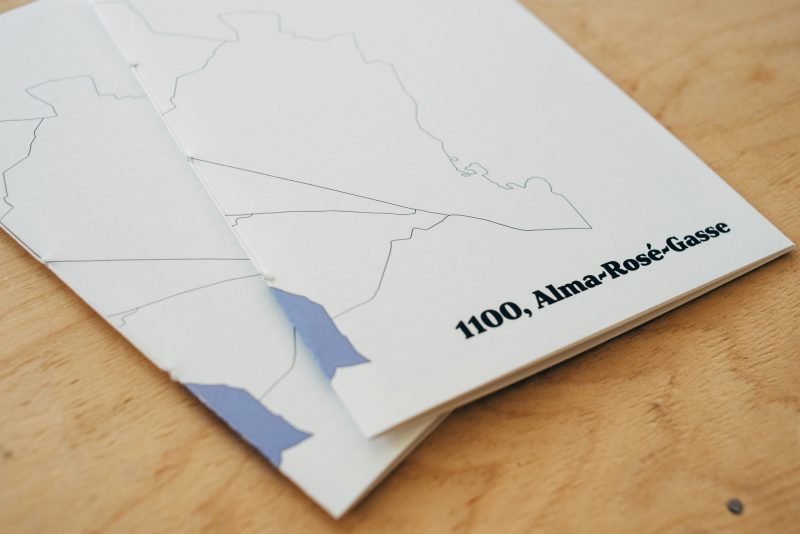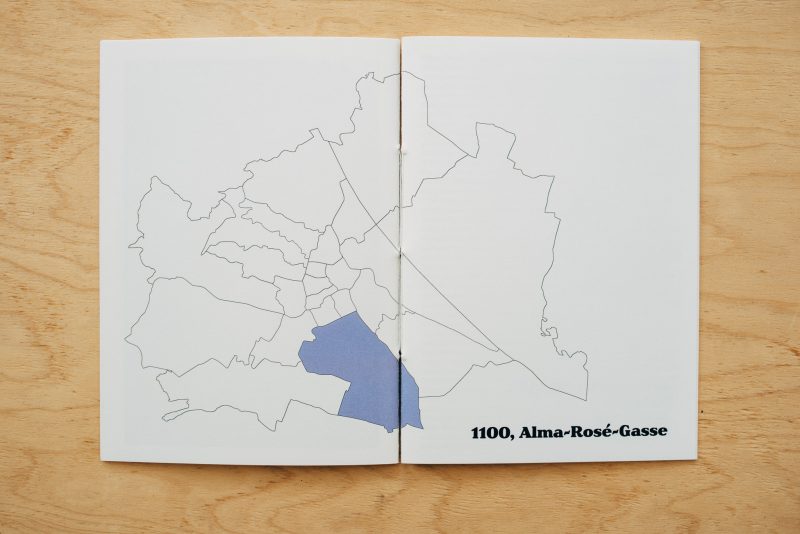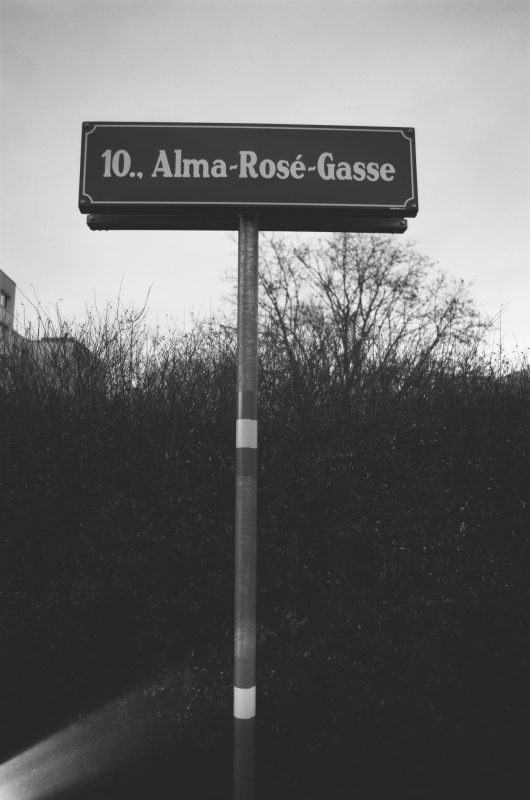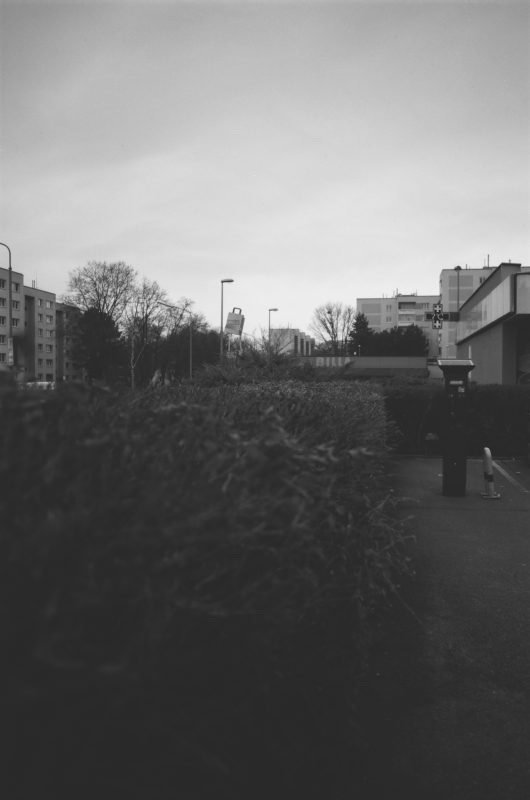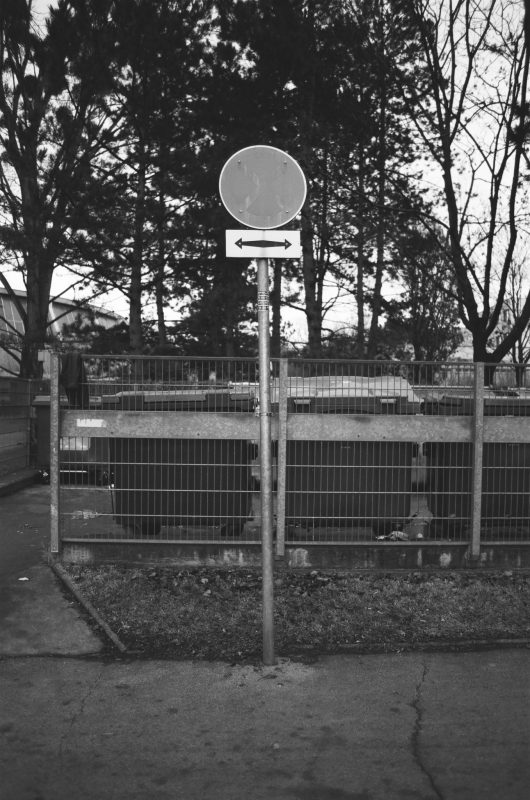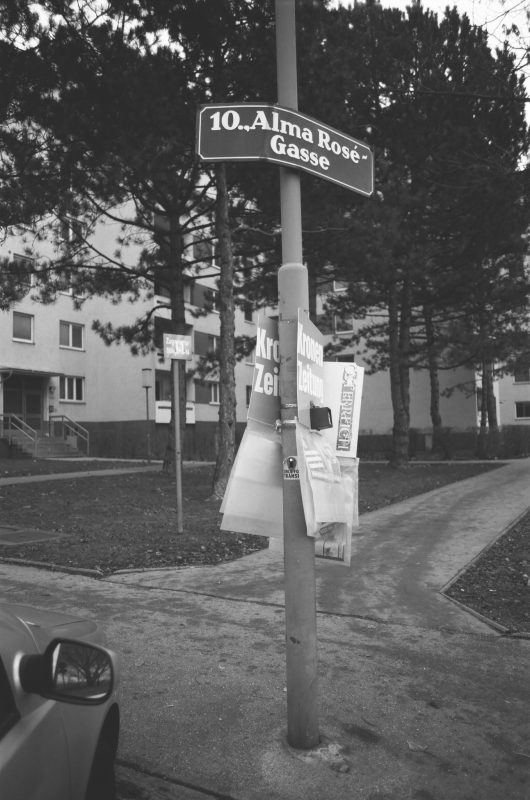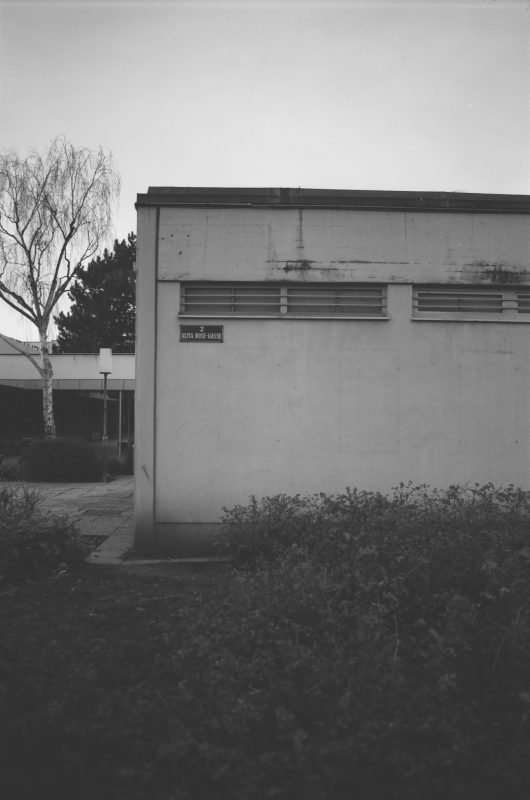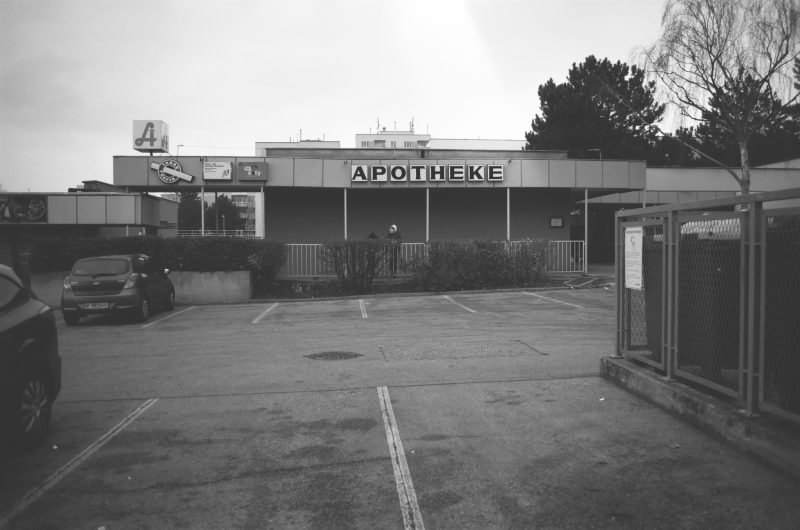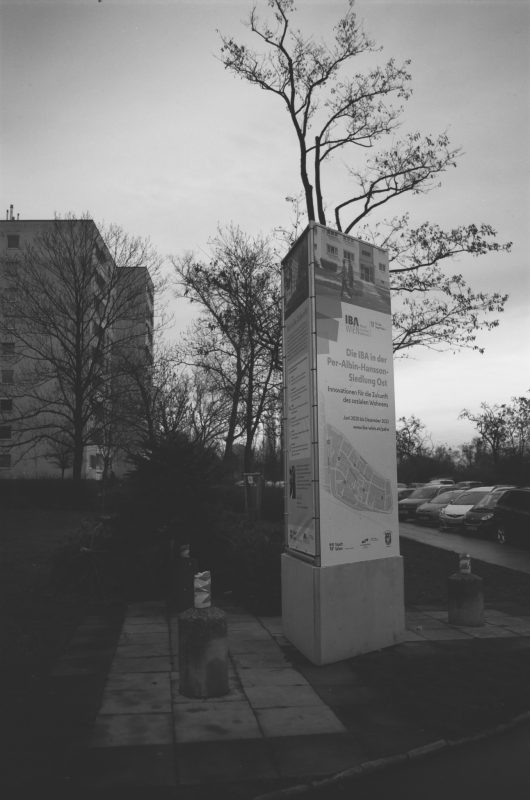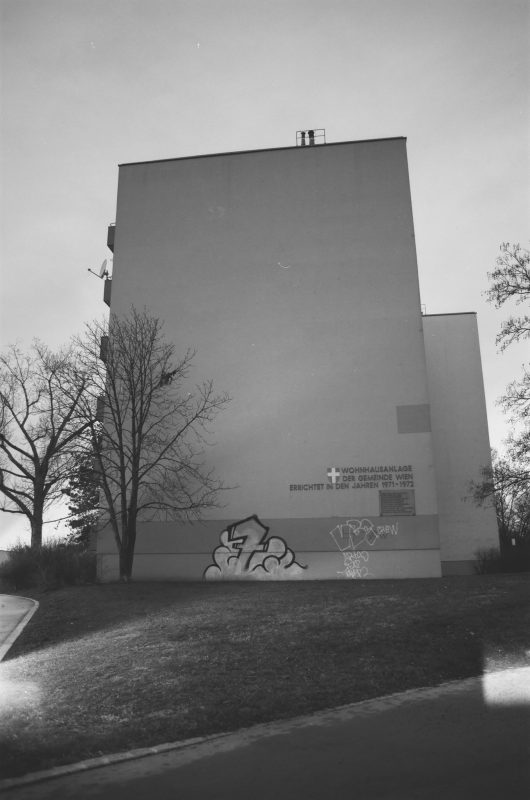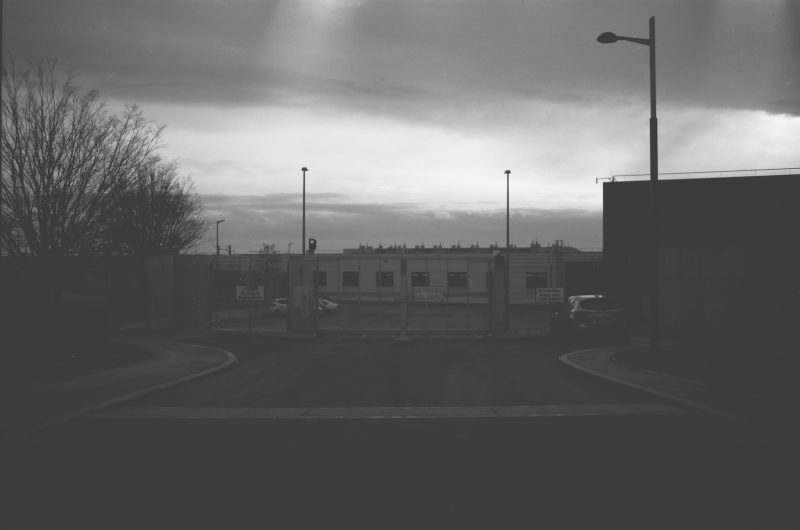Alma-Rose-Gasse
1100 Favoriten
€ 10,00
Pages: 16 cover
Edition: 5 + artists copy (first edition)
Date: 2021
Film: Astrum 100
Camera: Minolta X300s
5 in stock
Buy a print
Alma-Rosé-Gasse (Oberlaa), named in 1969 after the violinist Alma Rosé (November 3, 1906 – April 5, 1944).
Alma Rosé was born into a family of musicians, the daughter of Arnold Rosé and his wife Justine Mahler. Alma Rosé was trained as a violinist by her father. In 1920, Rosé made her debut as a soloist in Bad Ischl, and in 1926 she made her debut at the Musikverein in Vienna under her father’s baton. In May 1929 she made her only recording in Vienna.
In 1930 she married the Czech Váša Příhoda (1900–1960), who is considered one of the greatest violin virtuosos of the 20th century and with whom she successfully completed concert tours. She lived with her husband near Prague until their divorce in 1935. In 1936 she returned to her parents in Vienna.
In 1932 she founded the women’s orchestra Die Wiener Walzermädeln, an ensemble with which she undertook concert tours throughout Europe. In the period from 1934 to 1938, Rosé organized several solidarity concerts abroad in protest against the Nazi regime in Germany.
In 1938 the orchestra was dissolved by the National Socialists. Alma Rosé managed to escape to London on March 24, 1939 and her father on May 2, 1939. In July 1939, Rosé gave one of her last concerts in freedom: in London, she appeared as a member of the Rosé Quartet at a concert organized by the “Musicians Group of the Austrian Circle” to mark the 130th anniversary of Haydn’s death. In November 1939, three months after the outbreak of the Second World War, she flew to Amsterdam for a concert, where she went into hiding after the occupation by the German Wehrmacht in May 1940. Between January 1941 and August 1942, Rosé gave illegal house concerts, mainly in the Netherlands, together with the Hungarian pianist Géza Frid. She entered into a marriage of convenience with Dutch engineer Constant August van Leeuwen Boomkamp, believing that she was protected by an “Aryan” name. After the deportations of Dutch Jews began, she fled to France in August 1942. In December 1942 she was arrested in Dijon by the German occupation police deployed there and interned in the Drancy transit camp. On July 18, 1943, Rosé was deported to the Auschwitz concentration camp (main camp). Soon after, she was transferred to the Auschwitz-Birkenau women’s camp and assigned by the notorious head warden Maria Mandl to conduct the orchestra of female prisoners she had created (the girls’ orchestra). The ensemble had to accompany the prisoners moving out and in for forced labor with marches and play concerts to entertain the Nazis. Although it consisted mostly of amateur musicians and only a small proportion of professional musicians, Rosé formed an ensemble that ensured the survival of some people in the camp.
Alma Rosé died in the concentration camp on April 5, 1944. There are various speculations about the cause of death, but food poisoning after eating spoiled canned food is very likely.


